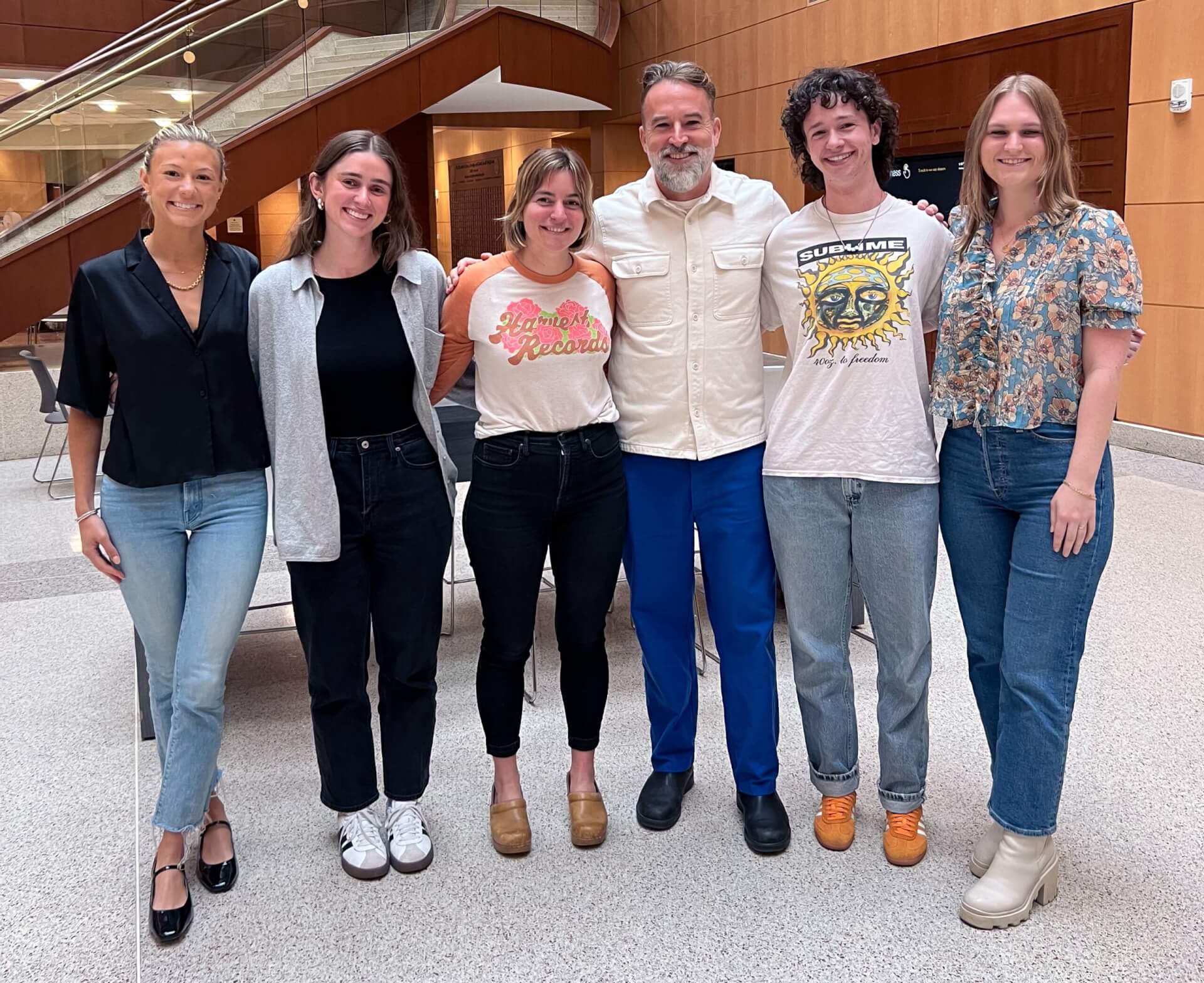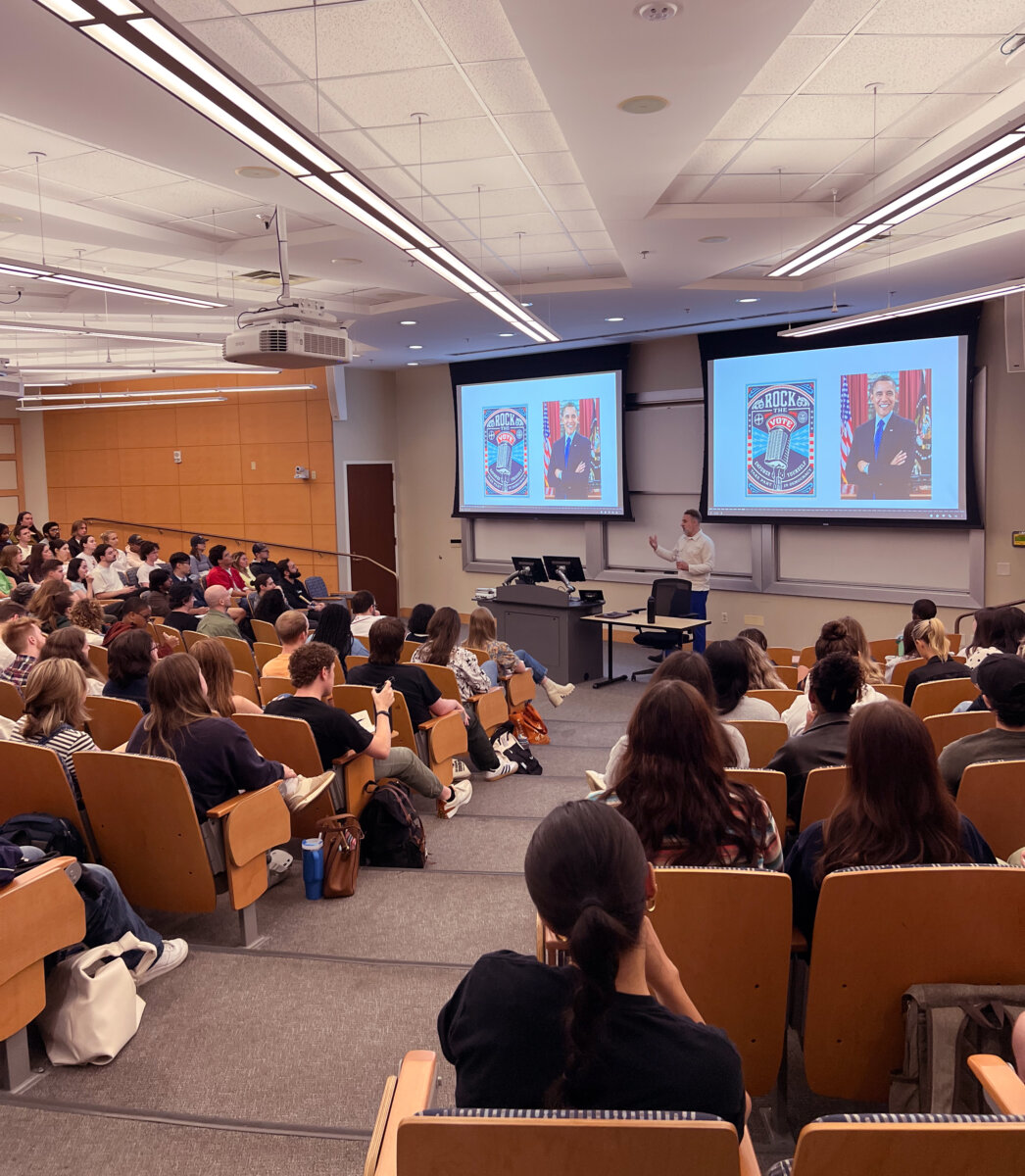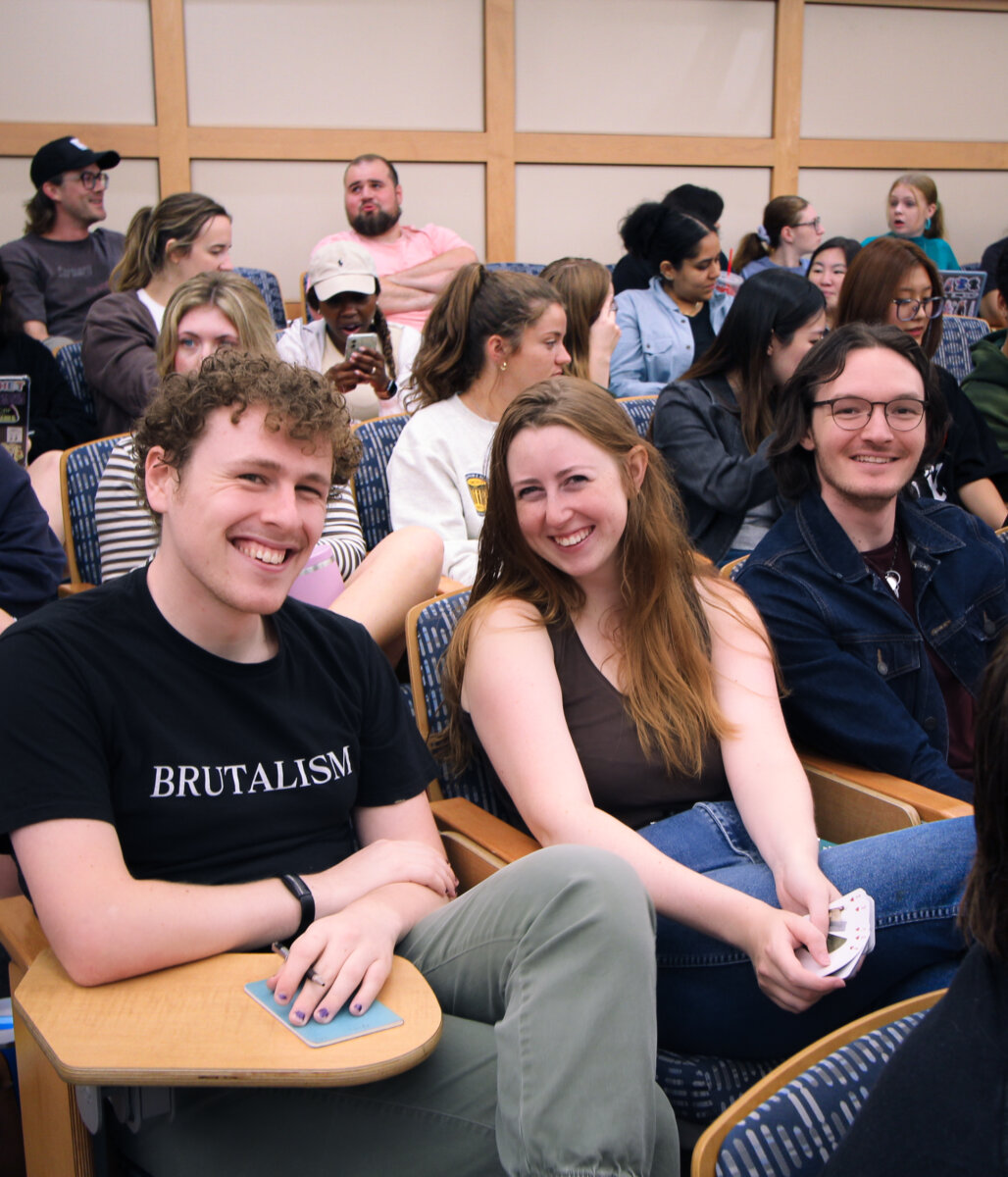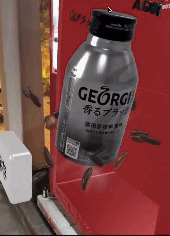
Transporting customers in Asia to luxury clothing stores in France. Implementing augmented reality for brands like Bottega Veneta and Coca-Cola. Leading the forefront from storytelling to story experiencing.
These are just a few of the things Ebenezer Bond is doing as the CEO of Studio Listo, Head of US Business for KALKUL, and as a lifelong entrepreneur and experience designer. The industry leader joined Brandcenter students at Friday Forum to share his knowledge about the future of media and bridging culture and commerce. Whether working as a temp at Wieden + Kennedy, DJing in Brazil, or making an impact on the Obama campaign through Rock the Vote, Bond’s experiences have pushed him to think outside the classic concepts of marketing. He now acts as thought leadership in reshaping consumer interactions with brands.
Fueled with a passion for “looking beyond numbers,” Bond created Studio Listo in 2019— a creative ad-venture studio that acts as both a creative agency and venture capital firm. Bond and co-founder Zoë Nissman combine their marketing acumen in strategy and design to help brands refine their vision, voice and visual presence.


During his talk, Bond emphasized the importance of spatial media and excelling in transmedia, or the telling of stories across various media platforms. To help define the term spatial media, Bond used the mobile game Pokémon GO as a culturally relevant example. Released in 2016, the free-to-download game was one of the first ubiquitous projects to combine AR and the physical world, illustrating the possibilities of emerging technology and its effect on user experience
Bond joined KALKUL in 2021—a spatial computing company based in Japan—as an investor, advisor and head of the company’s US arm. Specializing in cutting-edge technologies like AR and unique audio-visual experiences for artists like Aphex Twin, their interactive projects have measurable impacts on clients. By empowering artists and brands to “bridge pixels with the physical world,” KALKUL is increasing revenue and brand goodwill, positioning their clients as leaders in the new media space. KALKUL projects have proven that marketing efforts through advanced technologies have the power to increase interaction time and brand memorability and gain more attention.

Bond highlighted several innovative projects for us. One standout involved integrating AR for luxury brand Bottega Veneta in a 2024 popup series in Japan. The team created an AR treasure hunt in various stores, where customers could access digital elements on specially designed walls through a physical collectible card. The resulting campaign uniquely elevated the physical, tactile nature of the in-store experience with digital enhancements. And one of the results? Customers with families opted to stay in the store longer, as their children were captivated by the interactive game, a welcome distraction for parents in the midst of shopping.
Bond shared another of his favorite in-store experiences, a one-week pop-up installation for French fashion brand Agnès b as part of its “Signe Agnès” campaign. Equipped with a QR card, customers at locations in Japan could scan a physical “door” that led them into a 360-degree AR scene in Paris. This unique pop-up installation was regarded as the highlight of the campaign.



KALKUL continued to push boundaries with AR-integrated vending machines for Coca-Cola. This feat transformed the traditional vending machine into one that allowed customers to engage with digital versions of Coca-Cola branded drinks and collect digital goods like free gifts. The results? Again the increase in interaction —the AR vending machines earned an 8% increase in sales and 45% return-to-machine rate.
Bond concluded his talk acknowledging some of the problems facing new technology, but with an optimistic outlook. Difficulties in the realm of spatial media include the practical nature of clunky hardware and hard-to-use software and tools – but Bond points out that those areas are rapidly changing. And the third problem he sees is a creativity problem—which the next generation of ad professionals get to help tackle. When you think about it, the dystopian themes of science fiction and a tech-dominated, bleak future is actually a statement of the past. How do we change the narrative for the future?
Brandcenter also welcomed Bond to our Director’s Council this academic year.
